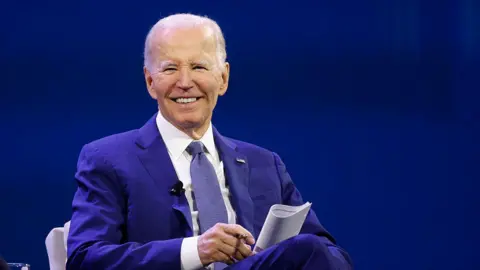A former police officer involved in the tragic shooting of Breonna Taylor has received a 33-month prison sentence after being found guilty of civil rights violations linked to the botched raid that led to her death. Brett Hankison was convicted by a federal jury for using excessive force during the incident, which occurred when officers executed a "no-knock" search warrant at Taylor's home amid a narcotics investigation. Hankison’s sentence stands in contrast to the Trump administration's recent push for a drastically lesser sentence of just one day.
This sentence marks a significant moment in a case that has galvanized protests nationwide and placed a spotlight on systemic racism and police brutality in the U.S. Following the verdict, Taylor’s family expressed mixed emotions. Tamika Palmer, Taylor's mother, stated that while the sentence was a positive step, she criticized prosecutors who advocated for leniency. Kenneth Walker, Taylor's boyfriend who was present during the raid, shared a sense of gratitude for the ruling, viewing it as a small measure of justice.
Hankison, the only officer to be criminally charged in connection with the incident, will incur three years of supervised release after serving his sentence. Meanwhile, another officer, Kelly Goodlett, awaits sentencing for her role in falsifying the search warrant documentation related to the raid.
The case has deepened discussions around police accountability, sparked by the public outrage following the deaths of Breonna Taylor and George Floyd in 2020. Critics of the recent sentencing recommendations highlight a concerning trend of leniency toward law enforcement officers involved in violent encounters with civilians, particularly when those civilians are people of color.
Amid these tensions, political dynamics have shifted significantly. The Trump administration's recent influence over the Department of Justice's recommendations raised alarms among advocates for civil rights. Following Trump's reelection, the Justice Department signaled its intent to dismantle several police reform initiatives initiated under President Biden, pivoting away from federal oversight of police conduct and investigations that seek to address systemic issues within law enforcement across the nation.
These broader policy changes are occurring while the Justice Department faces significant staffing challenges, with reports indicating a steep decline in Civil Rights Division personnel since Trump returned to office. The ongoing fallout from the Taylor case reflects a complex interplay of race, justice, and politics that remains at the forefront of national discourse.




















